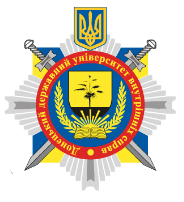ORGANIZATION OF THE INITIAL STAGE INVESTIGATION OF ILLEGAL HANDLING OF WEAPONS, MUNITIONS, EXPLOSIVES AND EXPLOSIVE DEVICES
DOI:
https://doi.org/10.32782/2709-9261-2022-1-5-11Keywords:
beginning, investigation, organization, weapons, ammunition, explosives, register, investigator, specialistsAbstract
Based on the analysis of the materials of criminal proceedings and scientific sources from criminology, the article outlines the organization of the initial stage of the investigation of the illegal handling of weapons, ammunition, explosives and explosive devices, as well as the identified problems that arise during the investigation of such criminal offenses and have an impact on the entire subsequent the course of the investigation; the ways of their solution are determined. It was established that the specificity of the initial stage of the pre-trial investigation is determined by the criminallegal nature of illegal handling of weapons, ammunition, explosives and explosive devices, and the fact that all actions that constitute this stage take place immediately after entering data on a certain criminal offense into the Unified register of pre-trial investigations. Attention is drawn to the fact that in the conditions of martial law, a special regime of criminal proceedings operates, in this regard, if there is no technical possibility of access to the Unified register of pre-trial investigations, the decision to start a pre-trial investigation is made by the inquirer, investigator, prosecutor, on which a corresponding resolution is issued, which must contain information provided by criminal procedural legislation. In urgent cases, an inspection of the scene of the incident may be conducted before the investigator, investigator, or prosecutor issues a decision on the initiation of a pre-trial investigation (the decision is taken immediately after the inspection is completed). In this regard, the main task at the initial stage of the pre-trial investigation of criminal offenses for the investigator (or other person conducting the investigation) is to determine the necessary evidentiary information and its sources. During such activity, primary, “signal” information is obtained as a result of the relevant initial investigative situation, versions are built, evidence is collected, and information is transformed into basic information that reflects the circumstances of the subject of evidence in criminal proceedings. Depending on the processing of primary information, its practical verification and logical assessment, the pre-trial investigation body plans priority tasks, develops a strategy and directs the entire course of further investigation.
References
Бондар В.С., Кривонос М.В. Зміст та особливості предмета доказування в кримінальних провадженнях про злочини у сфері обігу вогнепальної зброї та бойових припасів. Вісник ЛДУВС ім. Е.О. Дідоренка. 2018. № 3 (83). С. 195–209.
Вакулік О.А., Азаров Ю.І. Початок досудового розслідування у кримінальному провадженні : навчальний посібник. Київ : Центр навчальної літератури, 2015. 184 с.
Дрозд В.Г. Правове регулювання досудового розслідування: проблеми теорії та практики : монографія. Одеса : Видавничий дім «Гельветика», 2018. 448 c.
Карпушин С.Ю. Проведення слідчих (розшукових) дій : дис. … канд. юрид. наук : Київ, 2016. 210 с.
Коваленко В.В. Організація й тактика огляду вогнепальної зброї та боєприпасів на місці їх виявлення. Вісник ЛДУВС ім. Е.О. Дідоренка. 2017. Вип. № 1 (77). С. 189–197.
Кримінальний процесуальний кодекс України : Закон від 13 квітня 2012 р. № 4651-VI. Верховна Рада України. URL: http://zakon3.rada.gov.ua/–laws/show/4651-17
Лобойко Л.М. Актуальні проблеми визначення підстав і моменту початку досудового розслідування. Вісник кримінального судочинства. 2015. № 1. С. 87–92.
Олішевський О.В. Поняття організації розслідування злочинів. Боротьба зі злочинністю та забезпечення громадського порядку: проблеми теорії та практики. Харків : ХНУВС, 2009. С. 75–79.
Павловський В.В. Початок досудового розслідування: проблеми та перспективи розвитку. Науковий вісник Академій муніципального управління. Серія «Право». 2014. Вип. 2. С. 390–395.
Панов М.І., Шепітько В.Ю., Коновалова В.О. Настільна книга слідчого. Київ: Ін Юре, 2007. 728 с.
Пашиєва А.С. Огляд метальної холодної зброї на місці вчинення правопорушення. Участь спеціаліста у кримінальному провадженні : матеріали міжвідом. наук.-практ. кругл. столу (Київ, 24 квіт. 2019 р.). Київ, 2019. С. 92–95.
Пінчук М.Г. Предмет доказування і судовий розгляд справ про викрадення та інше незаконне поводження з вогнепальною зброєю, бойовими припасами і вибуховими речовинами : монографія. Харків : Право, 2009. 176 с.
Порядок ведення єдиного обліку в органах (підрозділах) поліції заяв і повідомлень про кримінальні правопорушення та інші події : наказ МВС України від 08 лютого 2019 р. № 100. Верховна Рада України. URL: https://zakon.rada.gov.ua/laws/show/z0223-19.
Про затвердження Інструкції з організації взаємодії органів досудового розслідування з іншими органами та підрозділами Національної поліції України в запобіганні кримінальним правопорушенням, їх виявленні та розслідуванні : наказ МВС України від 07 лип. 2017 р. № 575. Верховна Рада України. URL: https://zakon.rada.gov.ua/go/z0937-17.
Щербаковський М.Г. Використання доказів як етап доказування у кримінальному провадженні. Вісник Харківського національного університету внутрішніх справ. 2017. Вип. 2. С. 88–95.





